Apron
Many people have high demands on the material for a kitchen apron. It should not be afraid of moisture, heat and easy to clean. The lining, covered with a layer of antiseptic and moisture-proof paint, confidently copes with all three tasks. If concerns about the reaction of the wood to aggressive thermal effects remain, you can add 1-2 rows of tiles or a small screen of tempered glass in the area near the stove.
The board is laid both vertically and horizontally. The advantage of the first option is less dust, the second is the ability to visually stretch the space of a small kitchen. In this case, the apron can be painted to match the overall wall finish or made a bright color accent.
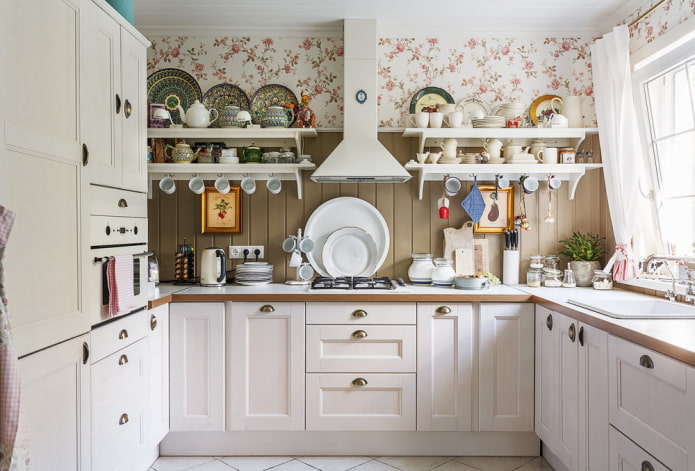
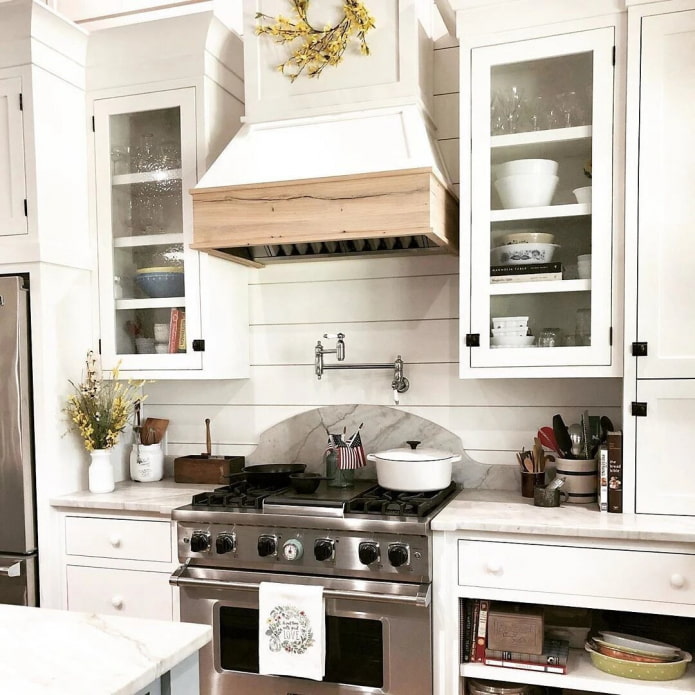
Ceiling
Unlike its stretch counterpart, a ceiling made of clapboard is not so difficult to make with your own hands. Both natural and painted boards will do. It is important to remember that a dark ceiling visually reduces the height of the room. For small kitchens, it is better to use a white profile, and natural wood shades should be left for spacious apartments.
Depending on the style, several design solutions can be used when decorating kitchen interiors.
- Full ceiling paneling.
- Combining paneling with other finishing materials. You can use boards to lay out the central part or the area above the dining table, and use, for example, plasterboard for the rest of the surface.
- Using false beams. Beams are painted in the color of the paneling or made as contrasting as possible.
- Decorative paneling. A ceiling made of dark wood, laid out with an original pattern, can be made the main accent of the kitchen.
The paneling finish, which goes from the ceiling to one of the walls, looks original. This technique is often used for zoning a room.
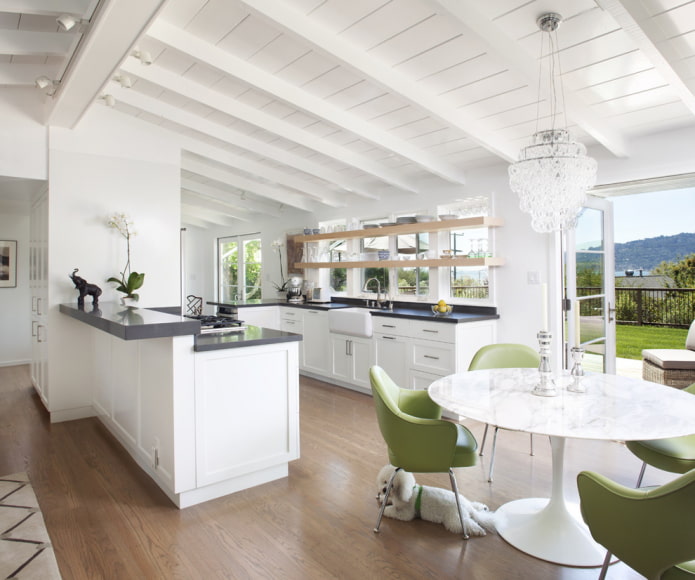
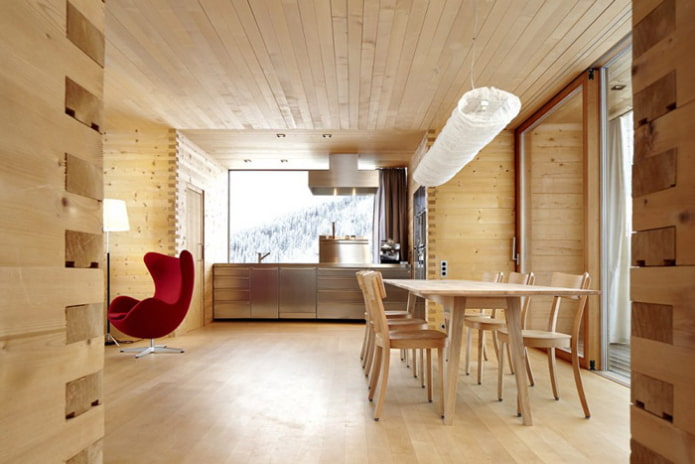
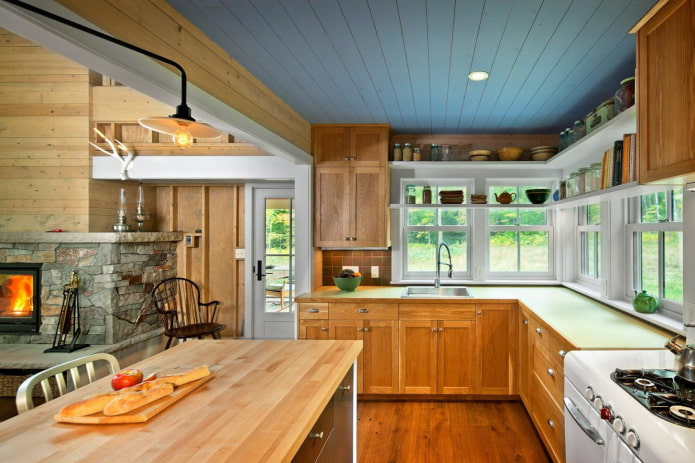
Wall decoration
A few years ago, finishing walls with clapboard was associated exclusively with country or bathhouse interiors. Today, it can be found in the most fashionable design projects for city apartments and cottages. Wooden panels are easy to paint and brush, and go well with decorative plaster, brick, and in dark versions, even with metal.
Depending on the task, the clapboard is placed horizontally or vertically. The walls are covered to their full height or partially, leaving the top meter and a half for wallpaper.
Diagonal laying of the boards looks unusual. This move adds dynamics and style to the space. If you want to add even more accents or make the interior more playful and spontaneous, paint one of the walls in a bright color. To accompany the bright finish, we choose laconic furniture and harmonious textiles.
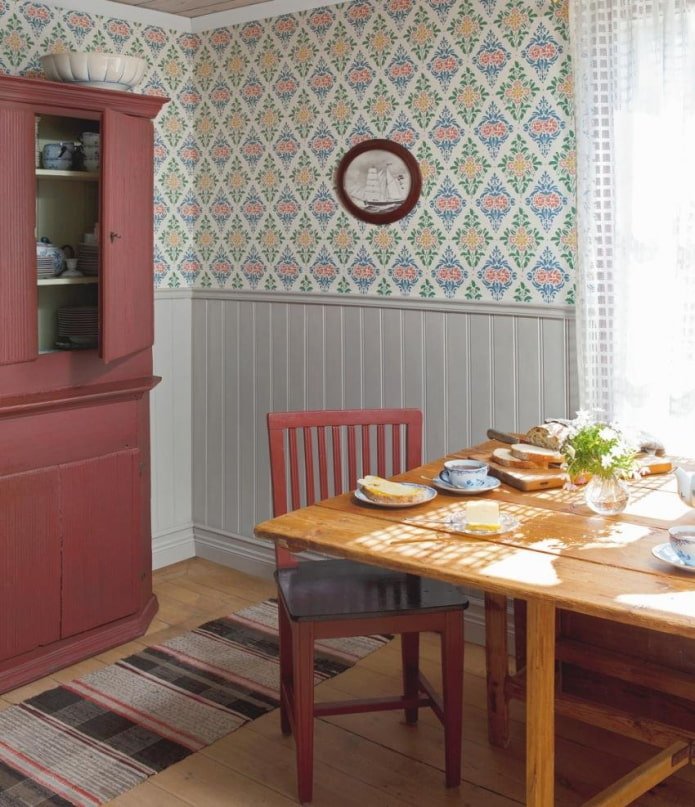
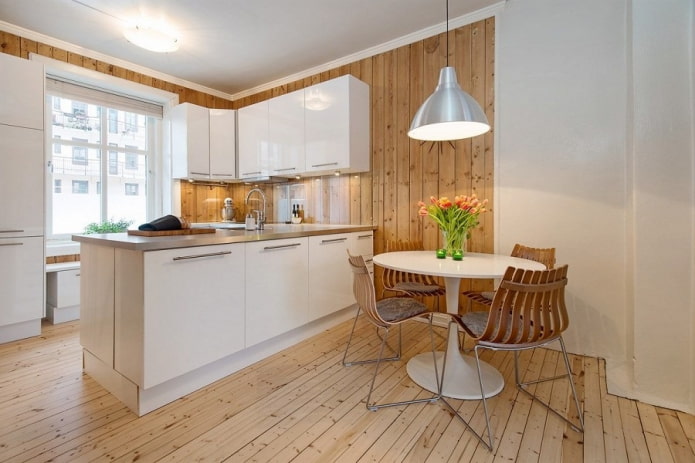
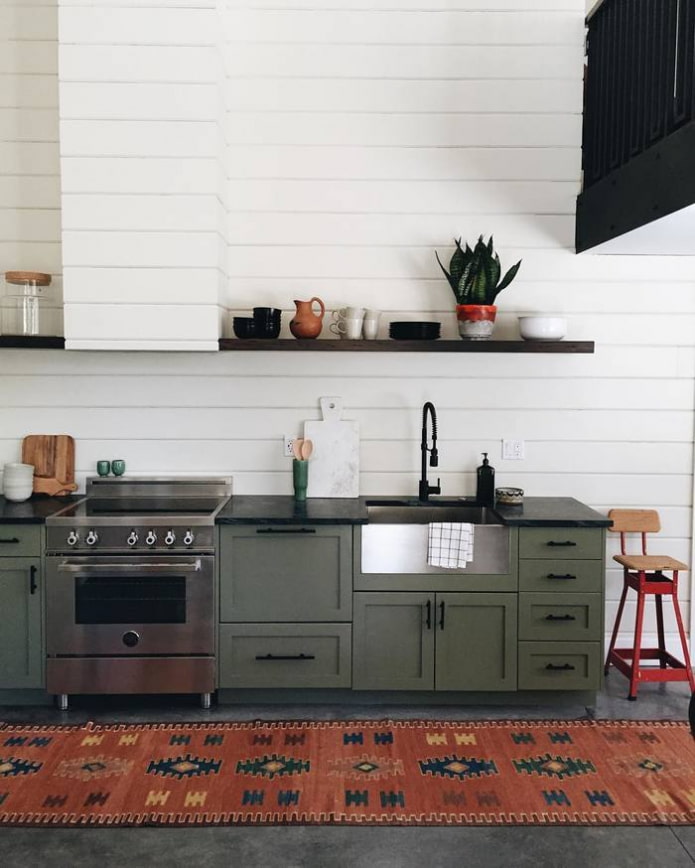
Partition for zoning
The interiors of large kitchens or dining rooms combined with the living room require mandatory zoning of the space. You can play with lighting, color, wall decoration or build a partition from clapboard. In the kitchen interior, it performs several functions at once: decorative, zoning, can be used as an additional surface for decor, flowers or dishes.
You can build a low bar counter, a slatted structure that lets in light, or a solid partition from the clapboard.
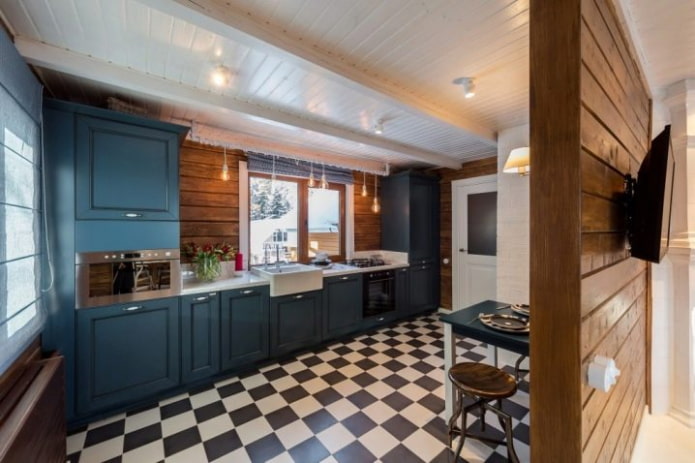
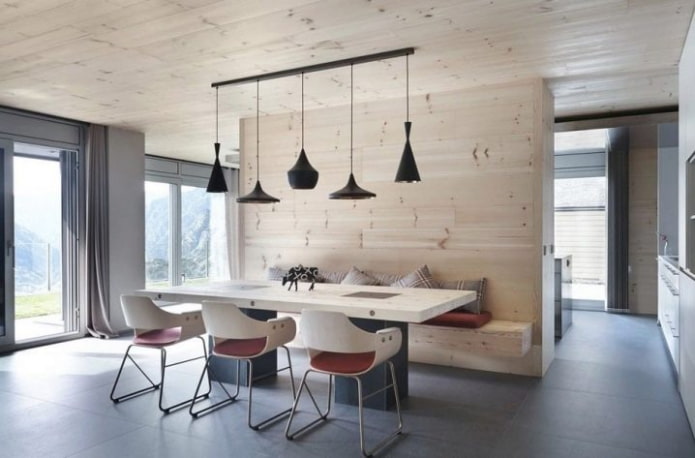
Kitchen set
For dining rooms in the style Provence, country or “Russian estate” furniture made of natural wood is an indispensable attribute. The clapboard is used to cover cabinet doors, kitchen islands, and to mask the front of a refrigerator that does not fit into the overall ensemble.
A board painted white and simple fittings are suitable for a Scandinavian interior. In an eco-interior, you can preserve the natural shade of wood.
You can build a rack from profiled boards or make hanging shelves for jars of spices. This will free up the work surface and keep everything you need at hand.
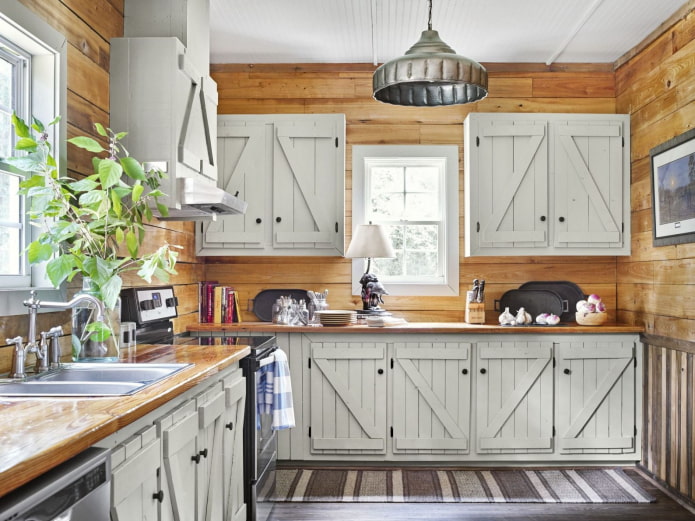
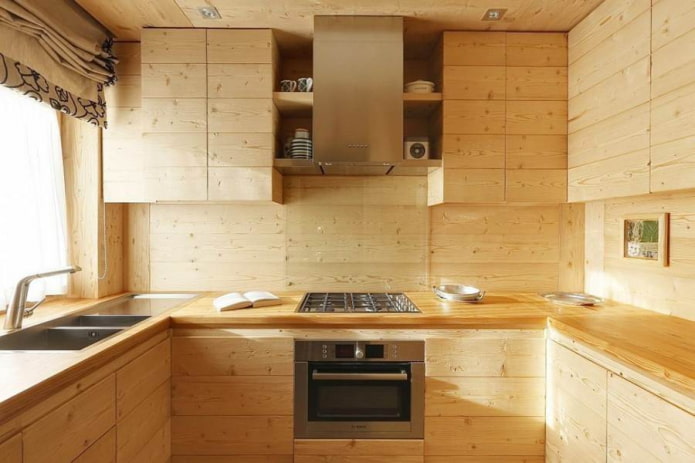
Dining group
Homemade folding tabletops and stools with clapboard seats will fit into the interior of a small kitchen no worse than their mass-market counterparts. And folding tables and chairs for unexpected guests are an ideal option for those who value free space in everyday life.
The shtil lining is distinguished by the absence of a shelf and allows you to create quite smooth surfaces. It is used for finishing kitchen furniture along with planed boards. The frame can be welded from a metal profile, and the tabletop and seats can be finished with clapboard.
Often, tinted wooden panels are used to decorate the ends of bar counters in loft or country interiors.
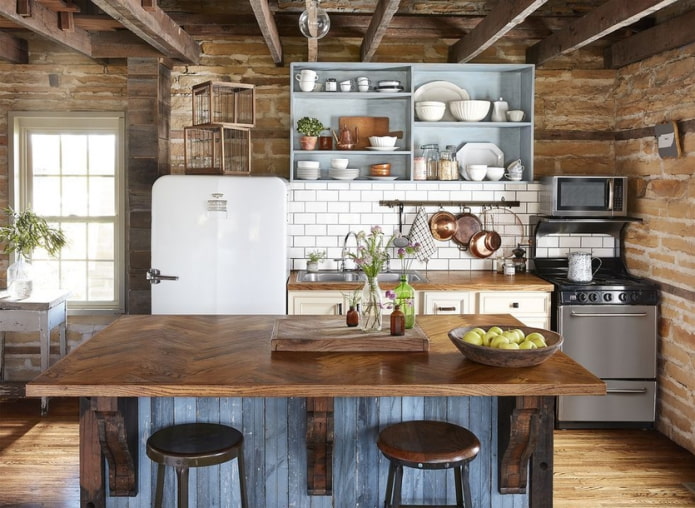
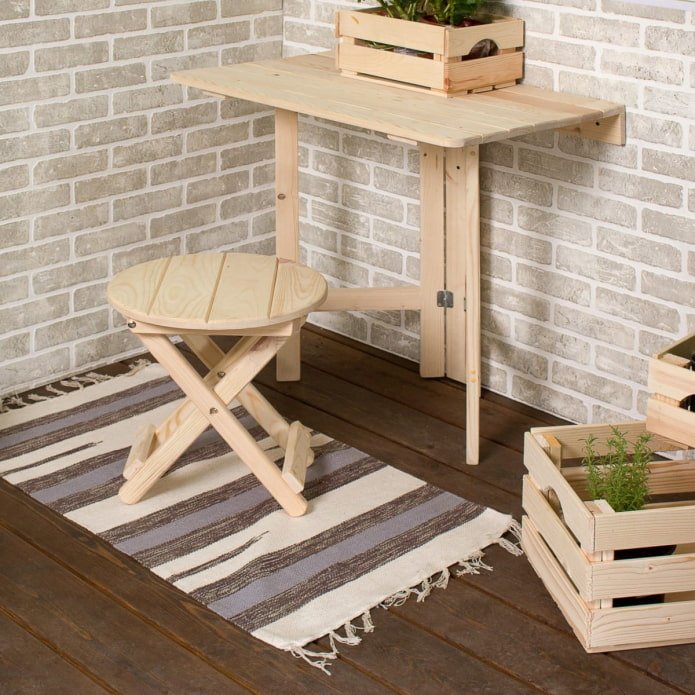
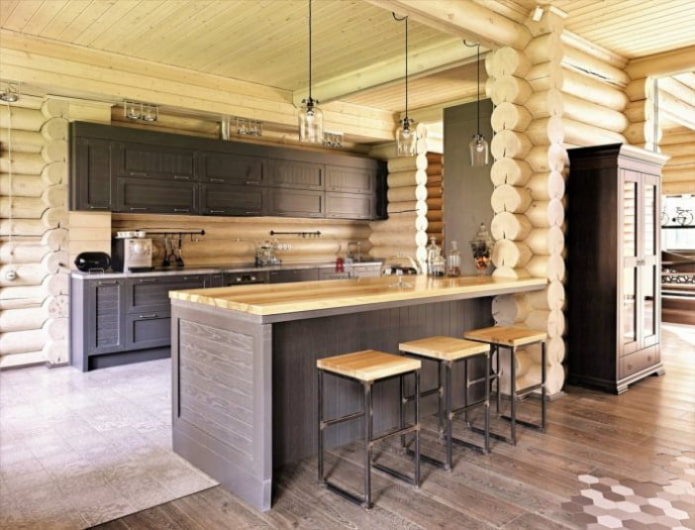
Doors
Sliding barn-type interior doors made of clapboard have a number of advantages:
- They fit harmoniously into most interior solutions. A door painted white will decorate a kitchen in Scandinavian or eco-style, slightly darkened or aged – suitable for a loft.
- They save space, and when open, they add more air to the room.
- Suitable for closing openings of non-standard sizes.
- They have an impressive appearance.
In combination with massive forged fittings, a barn door made of clapboard becomes a real highlight of the interior. It has both the charm of a rustic style and stylish brutality.
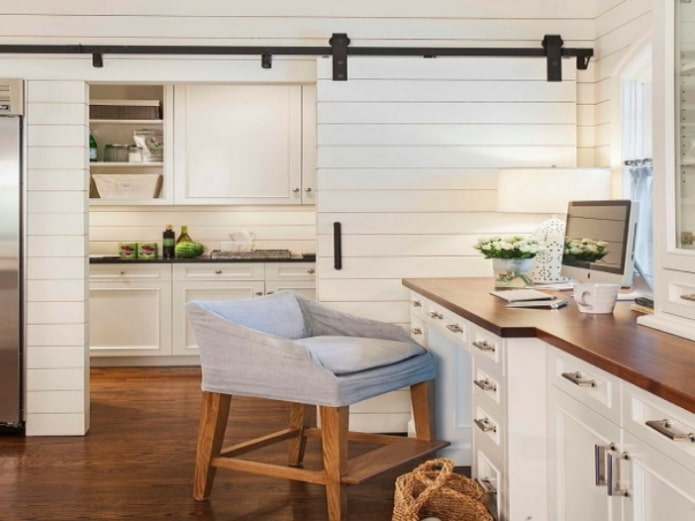
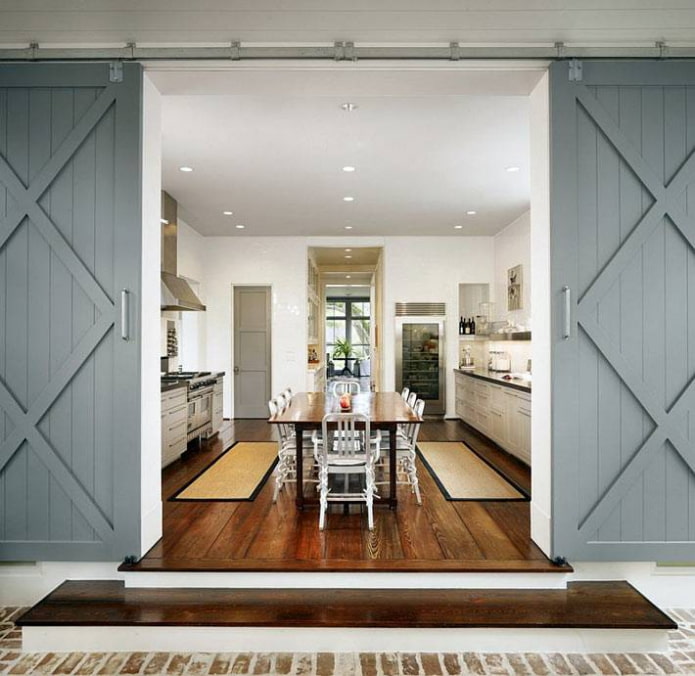
The use of wood in finishing and decor adds comfort and environmental friendliness to the kitchen interior. The clapboard treated with a protective impregnation will last for decades, and if the interior gets boring over time, the board can be painted or aged.
Now reading:
- Making a decorative fireplace with your own hands: 33 photos and ideas from foam and cardboard.
- Design 57 sq. m: more than 90 photos and 5 stylish solutions for an apartment
- Photo wall decor ideas: over 60 photos in frames and on clothespins.
- How to sheathe a gazebo from the outside? – 8 great ideas for any budget.
- Apartment design 44 m²: layouts, decor features and stylish ideas (47 photos)